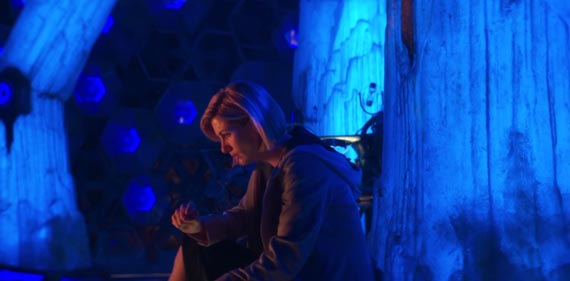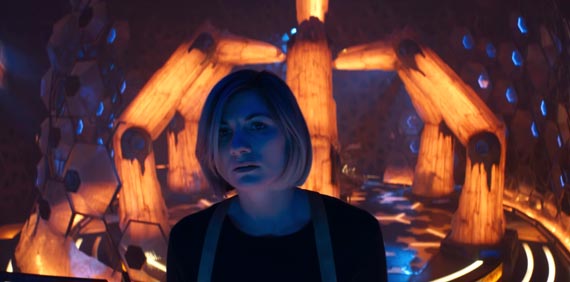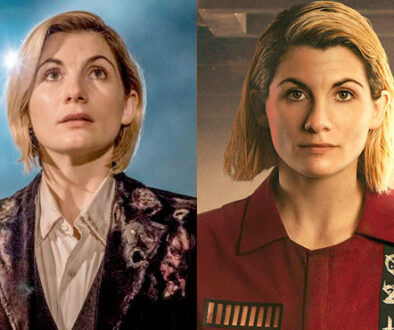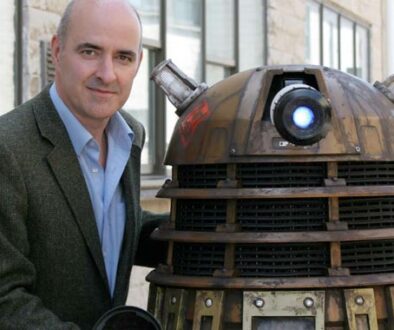Spyfall, Part Two Review – Commentary, Continuity, and Characterization: Who at Its Finest
Clint Hassell gives his spoiler-filled commentary on the second episode of Doctor Who Series 12.

Note: this review contains full SPOILERS for episode 2 of Series 12.
By ditching both the trite references to popular spy thrillers and the modern era setting of Part One, Part Two of Spyfall is not only elevated to be an example of science fiction at its finest, it also capitalizes on Doctor Who’s unique premise to both educate and entertain. Showrunner Chris Chibnall’s script builds on the promise of Series 11 to examine how the Doctor’s change in sex affected her character, to defend the current set of companions, and to establish the scope of Series 12.
Well-crafted science fiction expands on the fantastical elements of its plot to examine some facet of the human existence. In Series 11, “Kerblam!” was a humorous treatise on the evils of mercantilism, “Demons of the Punjab” and “The Witchfinders” compared bigotry and sexism to tangible, monstrous threats, and “It Takes You Away” was a stunning examination of the isolating natures of loss and grief. In Part Two of Spyfall, Chibnall voices an obvious concern with the intrusion of privacy as humanity becomes increasingly reliant on electronic devices. In the episode’s most pointed scene, Daniel Barton, developer of a leading online search engine, explains to a group of reporters the far-reaching ramifications of his data collecting abilities:
“We gave you pieces of plastic and circuitry, games, and you handed us . . . total access to your lives. What you buy, where you go, who you text, what you text, every thought and photo and post, every credit card number . . . and all your mother’s maiden names . . . . [F]or carrying our cameras in your pockets and putting our microphones in your bedrooms . . . . We told you, ‘Of course, your lives are private! Of course, your data is safe!’ And you believed us. You kept clicking ‘agree,’ and now, we can do anything.”
Similar to Series 11’s “Rosa,” Spyfall reveals that it is not an alien menace that is most threatening. Beyond the villainy of the Master, or the invading Kasaavins, Barton demonstrates that evil can be found in the careless decisions humanity makes when acting without critical thought.

Further, Chibnall’s script for Spyfall embraces the entirety of Doctor Who’s 56-year history with artron energy, perception filters, the superphone, telepathic mind wipes, and the Master again altering all of humanity’s DNA featuring in the adventure. There is a wickedly apt reference to Jodrell Bank, the real-life inspiration for the Pharos Project, the radio telescope setting of the Fourth Doctor’s demise and regeneration into Five, in Logopolis. The Doctor is again able to “sense” where she is in spacetime, explaining her sudden appearance as a magic trick (sensible after the events of “The Witchfinders”) before instinctively referring to herself as an “apparating man.” In perhaps the episode’s best meta reference, the Master refers to the Doctor’s ability to make telepathic contact with other Time Lords as “old school,” before the Doctor cheekily replies, “You’re not the only one who can do classic.” Finally, not only is the constant “sound of drums” obliquely referenced – – a concept completely missing from the Missy iteration of the Master – – Chibnall’s script expands on its meaning to explain that it is also the sound made by two hearts beating. Is the Doctor referring to literal Time Lord physiology or her figurative heart, compassionately reaching out to the Master’s, hoping to communicate?
What is especially admirable is that Chibnall goes beyond using these bits to continuity as fan service; instead, he utilizes references to the past to shade the development of characters in the current narrative. Seeing the Master’s signature weapon – – the tissue compression eliminator, unseen on TV since the Sixth Doctor serial, The Mark of the Rani – – is not only fun; Chibnall uses the scene to paint the Master as murderous, angry, and far more dangerous than when he, as Missy, was palling around with Clara, as if they were besties, in “The Witch’s Familiar.”

Both Chibnall and lead actress Jodie Whitaker display a more concrete take on Thirteen’s character than evidenced in Series 11. Trapped within the Kasaavin void, the Doctor dismisses Ada’s plan of escape, saying, “I do not think that will work” – – a far cry from the Doctor willing to jump into a seemingly bottomless crevice in “The Satan Pit.” Despite their core values remaining constant, the different iterations of the Doctor vary in subtle ways, imbuing each with a distinctive personality. Thirteen is best defined by her later statement to Ada, “Where there is risk, there’s hope.” Much of Series 11 was scripted by writers unaware that Thirteen would be female, and, while it is a powerful statement that the Doctor’s character remained so constant that lines scripted for a male Doctor could still be spoken by a female Doctor, it is just as empowering to see Whitaker portray a warmer, more hopeful Time Lord that has shifted in gender as well as sex.
Part Two of Spyfall expands on Thirteen’s sense of hope – – and makes good on the promise of Doctor Who’s time-traveling premise – – by plunging the narrative into the past. So often, “historical” episodes are anything but, their plots revolving around an “it was really aliens!” reveal. Chibnall thoughtfully pairs a fairly accurate historical setting with the audience’s foreknowledge of events to provide several poignant moments. As Ada stares out the window of Noor’s apartment and faces the travesty of a war-torn Paris, Noor’s response is honest, but tinged with prospect: “It’s not at its best.” Noor recognizes that culture and ideals like liberty, courage, and justice can survive the ebb of time – – a powerful message of optimism for Ada, a woman on the verge of her life’s great work. “It isn’t the first time?” Ada asks, unaware of the Great War. “These are the dark times,” the Doctor replies, “but they don’t sustain. Darkness never sustains, even though sometimes, it feels like it might.” The Doctor praises Noor for her pacifist stance, a “strong position to take during wartime,” later assuring her that the fascists will never win, “[n]ot while there’s people like you.”
The portrayal of historical figures in Doctor Who has always been a bit dicey – – never portrayed with much accuracy, often juxtaposing modern humor with “factual” events, and usually an excuse for shameless stunt casting. In Part Two of Spyfall, Chibnall not only pulls three historical figures into the narrative, but pointedly places two females in companion-esque roles, creating the most blatantly pro-female episode of Whitaker’s run, thus far. “I am not a fool, Doctor,” Ada cries, hearing the Doctor talk of being from the future. “And I am not treating you as one,” states the Doctor, as Charles Babbage merely looks over the two women’s shoulders. Note the knowing nod the Doctor gives to Ada when Babbage describes The Silver Lady as “like all great ladies . . . as much for decoration as for purpose.” Yes, Ada is written as preternaturally brave, finding herself “more than capable” of firing a machine gun, leading to the episode’s best fist-pumping moment: “Don’t have a TARDIS; do have an Ada”; however, Chibnall is careful that the whimsical fantasy elements of the plot never overshadow Ada and Noor’s real-life accomplishments. It is to Chibnall’s credit that many online news outlets rushed to publish articles on Ada Lovelace and Noor Inayat Khan in the days following Spyfall, Part Two’s initial airing.

Incredibly, despite being seemingly overly filled with companions, this episode deepens the relationships within the show’s core cast of characters. Note that the Doctor and her companions are mirrored, asking similar questions, despite their separation. “What would you say to the others if they were here?” the Doctor asks herself, working out an escape from the Kasaavin homeworld. “You know what she’d ask now? ‘What do we have at our disposal?’” Yaz questions, regarding Team TARDIS’ plans to stop Daniel Barton. This connecting through line shows how “related” the Doctor and her “family” really are.
In another quiet scene that belies its character development, the three companions question their plans:
Yasmin: “What if the Doctor doesn’t come back? What if we don’t see her again?”
Ryan: “We keep going. Stop Barton. Get rid of those creatures, whatever they are.”
Graham: “Ryan’s right. We carry on, doing what the Doctor would want us to do.”
Here, Chibnall defends Yaz, Ryan, and Graham as companions. Rather than being tied to some mystery that the Doctor must solve, the three travel with Thirteen because their ideals are aligned with hers. Having seen first-hand how the Doctor fights to make the universe better, they are willing to continue on in her name. This recalls Jack Harkness, Martha Jones, and Sarah Jane Smith – – former companions who all became more realized in their drives, having known the Doctor.
Further, Graham begins to seriously question what they know about the Doctor, leading to a confrontation in the episode’s epilogue. This is growth in the team dynamic. The narrative has moved beyond showing Graham, Ryan, and Yaz “all of time and space,” and the three have developed beyond being mere stock companions. “Can we visit your home?” Yaz asks. “Another time,” says the Doctor, a carefully crafted statement that leads to this gut-punch of a final shot:

In its final act, Spyfall gives Series 12 – – and, by extension, Doctor Who as a whole – – a purpose. Modern Who has always placed the companions central to the narrative, with the Doctor seen through their eyes. Much of former showrunner Steven Moffat’s tenure could be defined by series-long story arcs centered on Amy, River, Clara, or Missy’s identity, ironically making the development of the titular Time Lord secondary to that of his companions. Thirteen returning to find Gallifrey razed and in ruins gives the Doctor central agency in the show’s overarching narrative for the first time since “The Day of the Doctor,” and promises an examination of the character equal to that last seen in the series of holiday specials that capped David Tennant’s tenure as the Tenth Doctor.
Random Musings


Further, the idea of disguising important technology as art, thus ensuring it’d be passed down through time is clever. A similar concept featured in “The Day of the Doctor.”
(Time) Capsule Review
By voicing a powerful argument against the encroachment of data-mining electronic devices on humanity’s privacy, Chibnall’s script represents a well-crafted example of science fiction. Further, by utilizing the series’ decades-long continuity to provide context for its character’s development, and by featuring women of historical importance in a manner that both educates and entertains, Spyfall rises to be a stellar example of what Who can accomplish. The episode’s epilogue, which places the Doctor as the central character within the narrative, gives renewed purpose to the series.








